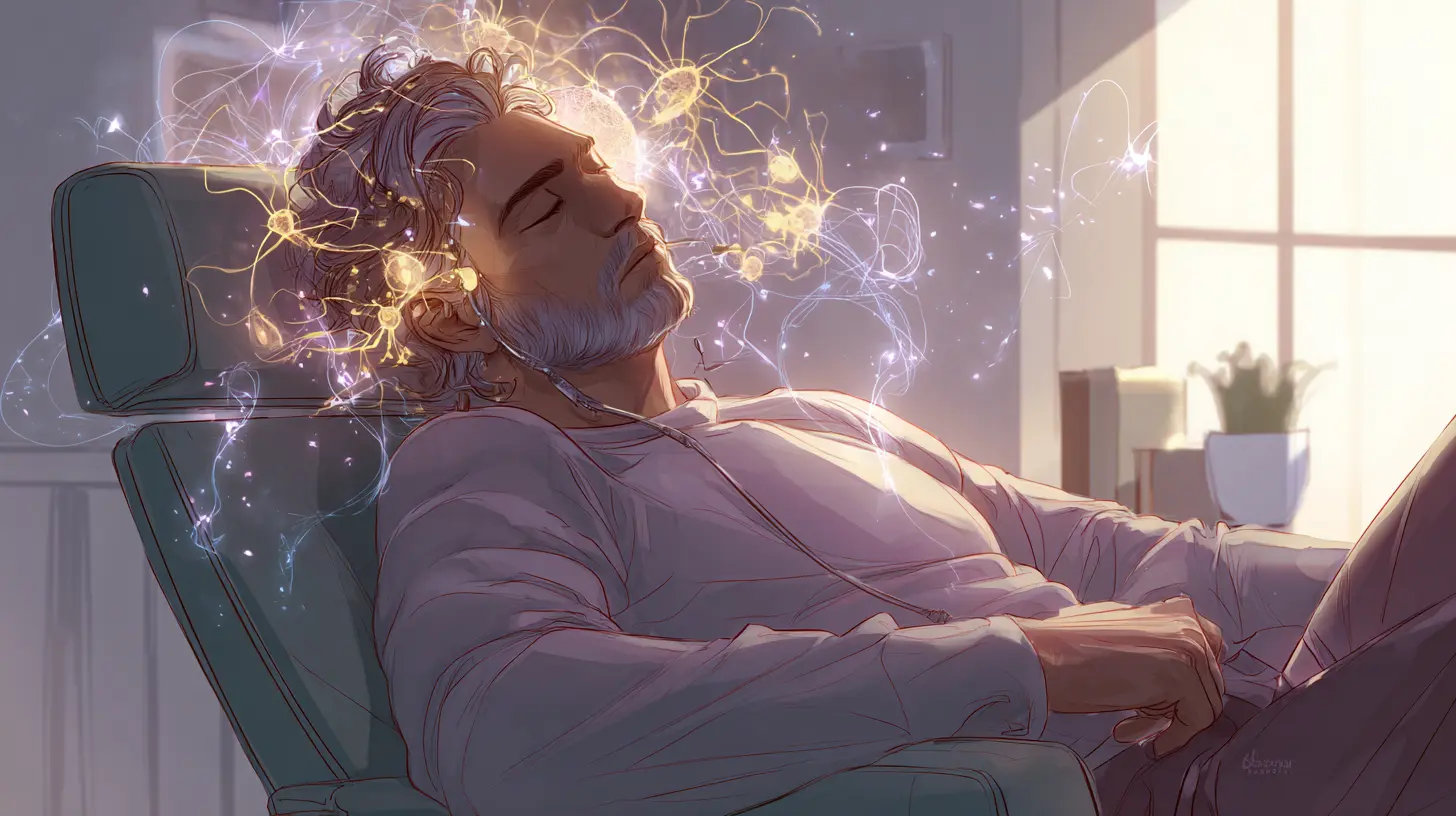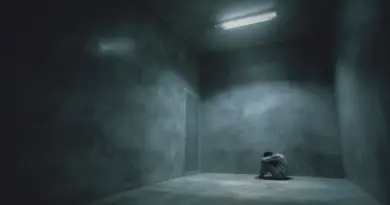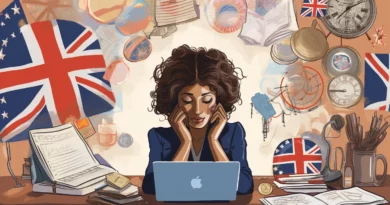Vídeo | Naps: Good for Your Brain?
Uma nova pesquisa levanta a questão: um cochilo durante o dia pode ser a chave para um cérebro mais saudável e menos encolhido com a idade? O estudo sugere que cochilos curtos e regulares podem diminuir o risco de desenvolver condições como Alzheimer, mantendo o seu cérebro mais ‘sharp’ (alerta e com raciocínio rápido). No entanto, nem todos os cochilos são criados iguais, pois estudos indicam que a duração é crucial: enquanto cochilos curtos podem ajudar, cochilos mais longos podem ‘hinder’ (dificultar ou prejudicar) a sua saúde.
| Audio | |
|---|---|
Normal | Slow |
| English Transcript | Tradução |
| Naps: Good for your brain? | Sonecas: são boas para o seu cérebro? |
| Could a short sleep during the day protect your brain? | Será que um sono curto durante o dia pode proteger o seu cérebro? |
| This is News Review from BBC Learning English. | Este é o News Review do BBC Learning English. |
| I'm Beth. | Eu sou Beth. |
| And I'm Phil. | E eu sou Phil. |
| Make sure you watch to the end to learn all the vocabulary that you need to talk about this story. | Certifique-se de assistir até o final para aprender todo o vocabulário que você precisa para falar sobre esta notícia. |
| And don't forget to subscribe to our channel, like this video and try the quiz on our website. | E não esqueça de se inscrever no nosso canal, curtir este vídeo e tentar o quiz no nosso site. |
| Now, today's story. | Agora, a história de hoje. |
| Our brains get smaller as we get older, but this doesn't happen as fast in people who take regular short sleeps during the day. | Nossos cérebros diminuem conforme envelhecemos, mas isso não acontece tão rápido em pessoas que tiram sonecas curtas regularmente durante o dia. |
| That's according to a new study. | É o que diz um novo estudo. |
| Researchers suggest that these naps might reduce the risk of developing conditions like Alzheimer's in later life. | Os pesquisadores sugerem que essas sonecas podem reduzir o risco de desenvolver condições como Alzheimer no futuro. |
| You've been looking at the headlines. | Você esteve analisando as manchetes. |
| What's the vocabulary? | Qual é o vocabulário? |
| We have 'power nap', 'sharp', and 'hinder'. | Nós temos ‘power nap’, ‘sharp’ e ‘hinder’. |
| This is News Review from BBC Learning English. | Este é o News Review do BBC Learning English. |
| Let's have a look at our first headline. | Vamos dar uma olhada na nossa primeira manchete. |
| This is from iNews. | Esta é do iNews. |
| Power naps linked to greater brain capacity, scientists say. | ‘Power naps linked to greater brain capacity, scientists say.’ (‘Sonecas energéticas ligadas a maior capacidade cerebral, dizem os cientistas.’) |
| So brain capacity is about brain size and this headline says that it's linked to something called 'power naps'. | Então, capacidade cerebral se refere ao tamanho do cérebro, e esta manchete diz que está ligada a algo chamado ‘power naps’. |
| Now we're going to look at this phrase 'power naps', but Phil, the word 'nap', isn't that a short sleep that babies have? | Agora vamos olhar para a frase ‘power naps’, mas Phil, a palavra ‘nap’ não é um cochilo curto que bebês tiram? |
| Well, anyone can have a nap, but we're looking at 'power naps'. | Bem, qualquer pessoa pode tirar uma soneca, mas estamos falando de ‘power naps’. |
| Now, these are short sleeps, usually during the working day in order to be able to do your job better. | Agora, essas são sonecas curtas, geralmente durante o expediente, para que você possa melhorar o desempenho no trabalho. |
| And in fact, maybe I should have a power nap after recording this. | E, na verdade, talvez eu devesse tirar uma ‘power nap’ depois de gravar isso. |
| Well, that might be good for your brain. | Bem, isso pode ser bom para o seu cérebro. |
| That's what this headline is saying, but there are other types of nap, aren't there? | É o que esta manchete diz, mas existem outros tipos de soneca, não existem? |
| Yes, you might have heard of a 'cat nap' which is kind of similar, but it's not associated with work and we have other words to talk about sleep like 'snooze' or 'to nod off' and many others. | Sim, você talvez tenha ouvido falar de um ‘cat nap’, que é parecido, mas não está associado ao trabalho, e temos outras palavras para falar sobre sono, como ‘snooze’ ou ‘to nod off’ e muitas outras. |
| OK, well, before our audience nods off, let's look at that again. | OK, bem, antes da nossa audiência “pegar no sono”, vamos olhar isso de novo. |
| Let's have our next headline. | Vamos para nossa próxima manchete. |
| Yeah. | Sim. |
| This one is from the Times. | Esta é do The Times. |
| Taking more naps could help you to stay sharp in later life. | ‘Taking more naps could help you to stay sharp in later life.’ (‘Tirar mais sonecas pode ajudar você a se manter alerta na velhice.’) |
| Now, again, we're talking about naps and this article refers to another study which suggested that having naps can help our brains perform better. | Agora, novamente estamos falando de sonecas, e este artigo menciona outro estudo que sugere que tirar sonecas pode ajudar nossos cérebros a funcionar melhor. |
| The word we're looking at is 'sharp' . | A palavra que estamos analisando é ‘sharp’. |
| Now, Phil, I know a sharp knife, but what is a sharp brain? | Agora, Phil, eu conheço a palavra ‘sharp’ relacionada a uma faca afiada, mas o que significa ‘sharp brain’? |
| Well, you've probably guessed that. | Bem, você provavelmente já adivinhou. |
| It's a metaphor. | É uma metáfora. |
| If you describe someone as 'sharp', it means they're alert and they can think quickly. | Se você descreve alguém como ‘sharp’, isso significa que ela está alerta e consegue pensar rapidamente. |
| Think about when you've had a good rest, and you're feeling good. | Pense em quando você descansou bem e está se sentindo revigorado. |
| Everything just seems to be a bit easier. | Tudo parece ser um pouco mais fácil. |
| Yep, and we use it to talk about people that always have a quick answer for something. | Sim, e usamos isso para falar sobre pessoas que sempre têm uma resposta rápida para algo. |
| We can say that they are sharp or that they have a sharp mind. | Podemos dizer que elas são ‘sharp’ ou que têm uma mente afiada. |
| Yes, and it's being used here to say that regular naps will keep your brain performing well. | Sim, e esta palavra está sendo usada aqui para dizer que sonecas regulares manterão seu cérebro funcionando bem. |
| Yes, just like how practising your English every day will keep your language skills sharp. | Sim, assim como praticar inglês todos os dias mantém suas habilidades com o idioma afiadas. |
| OK, let's look at that again. | OK, vamos olhar isso de novo. |
| OK, next headline please. | OK, próxima manchete, por favor. |
| This one is from the Daily Express. | Esta é do Daily Express. |
| Naps could help or hinder your health, depending on their length, study suggests. | ‘Naps could help or hinder your health, depending on their length, study suggests.’ (‘Sonecas podem ajudar ou prejudicar sua saúde, dependendo da duração, sugere estudo.’) |
| Now, this is actually referring to a different study and it says that long naps can be associated with obesity while shorter naps can reduce the risk of high blood pressure. | Agora, este artigo se refere a um estudo diferente, que diz que sonecas longas podem estar associadas à obesidade, enquanto sonecas mais curtas podem reduzir o risco de pressão alta. |
| We are looking at the word 'hinder'. | Estamos analisando a palavra ‘hinder’. |
| And this is often used with the word 'help', isn't it? | E esta palavra é muitas vezes usada junto com a palavra ‘help’, certo? |
| It is, but it means the opposite. | Sim, mas ela significa o oposto. |
| To 'hinder' means 'to make things harder' or worse. | ‘Hinder’ significa ‘tornar as coisas mais difíceis’ ou piores. |
| Now, here we are looking at health. | Agora, aqui estamos falando sobre saúde. |
| So, the headline is saying that some naps - shorter ones - are helpful - while others - longer ones - are unhelpful. | Então, a manchete está dizendo que algumas sonecas – as mais curtas – ajudam, enquanto outras – as mais longas – são prejudiciais. |
| That's right and 'hinder' is not that common in spoken English, but it is often used with the word 'help'. | Isso está correto, e ‘hinder’ não é muito comum no inglês falado, mas é muitas vezes usada com a palavra ‘help’. |
| And that's because of those two 'h's, 'hinder' and 'help'. | E isso acontece por causa dessas duas palavras que começam com ‘h’: ‘hinder’ e ‘help’. |
| So, for example, if something turns out to be less useful than you expected it to be, it might actually hinder rather than help you. | Então, por exemplo, se algo acaba sendo menos útil do que você esperava que fosse, pode, na verdade, prejudicar em vez de ajudar. |
| I could also say that having to work hinders me being able to take naps regularly. | Eu também poderia dizer que ter que trabalhar me impede de tirar sonecas regularmente. |
| That's right. | Isso está certo. |
| OK, let's look at that again. | OK, vamos olhar isso de novo. |
| We've had 'power nap', a short sleep during the day. | Tivemos ‘power nap’ – uma soneca curta durante o dia. |
| 'Sharp' - alert and quick thinking. | ‘Sharp’ – alerta e rápido em pensar. |
| 'Hinder' - to make something difficult or worse. | ‘Hinder’ – tornar algo difícil ou pior. |
| Now, there's more about sleep in this video, where we ask 'are late nights bad for your health?' | Agora, há mais sobre o sono neste vídeo, onde perguntamos: ‘ficar acordado até tarde faz mal para a sua saúde?’ |
| And don't forget to subscribe here, so you never miss a chance to learn more English. | E não se esqueça de se inscrever aqui para nunca perder a chance de aprender mais inglês. |
| Thanks for joining us, bye. | Obrigada por nos assistir. Tchau! |
| Bye. | Tchau! |
Contagem de palavras
A tabela abaixo exibe as palavras encontradas neste vídeo, bem como o número de vezes em que aparecem.
Veja também: Para que serve esta tabela?
| Freq. | Palavra | Freq. | Palavra | Freq. | Palavra |
|---|---|---|---|---|---|
| 29 | is | 26 | to | 24 | that |
| 20 | the | 20 | and | 17 | a |
| 16 | this | 15 | naps | 15 | are |
| 14 | have | 13 | we | 13 | it |
| 12 | you | 10 | at | 9 | your |
| 8 | now | 8 | not | 8 | hinder |
| 8 | but | 8 | brain | 7 | sharp |
| 7 | power | 7 | our | 7 | nap |
| 7 | in | 7 | help | 7 | about |
| 6 | us | 6 | of | 6 | headline |
| 6 | for | 6 | can | 6 | be |
| 5 | word | 5 | well | 5 | sleep |
| 5 | short | 5 | or | 5 | looking |
| 5 | look | 5 | let | 5 | I |
| 5 | from | 5 | english | 5 | day |
| 4 | with | 4 | they | 4 | study |
| 4 | something | 4 | so | 4 | say |
| 4 | ok | 4 | might | 4 | like |
| 4 | good | 4 | during | 4 | could |
| 4 | again | 3 | yes | 3 | what |
| 3 | used | 3 | there | 3 | talk |
| 3 | phil | 3 | more | 3 | means |
| 3 | make | 3 | here | 3 | health |
| 3 | harp | 3 | do | 3 | as |
| 2 | worse | 2 | work | 2 | will |
| 2 | while | 2 | which | 2 | vocabulary |
| 2 | video | 2 | think | 2 | these |
| 2 | than | 2 | take | 2 | subscribe |
| 2 | story | 2 | sleeps | 2 | shorter |
| 2 | says | 2 | saying | 2 | risk |
| 2 | right | 2 | review | 2 | regular |
| 2 | reduce | 2 | quick | 2 | people |
| 2 | others | 2 | other | 2 | ones |
| 2 | one | 2 | on | 2 | often |
| 2 | off | 2 | o | 2 | next |
| 2 | news | 2 | linked | 2 | life |
| 2 | learning | 2 | learn | 2 | later |
| 2 | keep | 2 | just | 2 | if |
| 2 | having | 2 | had | 2 | get |
| 2 | forget | 2 | capacity | 2 | bye |
| 2 | brains | 2 | better | 2 | being |
| 2 | bbc | 2 | associated | 2 | am |
| 2 | alert | 2 | actually | 2 | able |
| 1 | yep | 1 | yeah | 1 | working |
| 1 | words | 1 | who | 1 | where |
| 1 | when | 1 | website | 1 | watch |
| 1 | usually | 1 | useful | 1 | use |
| 1 | unhelpful | 1 | types | 1 | two |
| 1 | turns | 1 | try | 1 | today |
| 1 | times | 1 | those | 1 | thinking |
| 1 | things | 1 | their | 1 | thanks |
| 1 | talking | 1 | taking | 1 | sure |
| 1 | suggests | 1 | suggested | 1 | suggest |
| 1 | stay | 1 | spoken | 1 | someone |
| 1 | some | 1 | smaller | 1 | skills |
| 1 | size | 1 | similar | 1 | should |
| 1 | seems | 1 | scientists | 1 | rest |
| 1 | researchers | 1 | regularly | 1 | refers |
| 1 | referring | 1 | recording | 1 | rather |
| 1 | quiz | 1 | quickly | 1 | protect |
| 1 | probably | 1 | pressure | 1 | practising |
| 1 | please | 1 | phrase | 1 | performing |
| 1 | perform | 1 | out | 1 | order |
| 1 | opposite | 1 | older | 1 | obesity |
| 1 | nooze | 1 | nods | 1 | nod |
| 1 | nights | 1 | new | 1 | never |
| 1 | need | 1 | miss | 1 | mind |
| 1 | metaphor | 1 | me | 1 | maybe |
| 1 | many | 1 | longer | 1 | long |
| 1 | less | 1 | length | 1 | late |
| 1 | language | 1 | know | 1 | knife |
| 1 | kind | 1 | joining | 1 | job |
| 1 | inews | 1 | how | 1 | hinders |
| 1 | high | 1 | helpful | 1 | heard |
| 1 | headlines | 1 | harder | 1 | happen |
| 1 | h | 1 | guessed | 1 | greater |
| 1 | going | 1 | first | 1 | feeling |
| 1 | fast | 1 | fact | 1 | express |
| 1 | expected | 1 | example | 1 | everything |
| 1 | every | 1 | end | 1 | easier |
| 1 | does | 1 | difficult | 1 | different |
| 1 | developing | 1 | describe | 1 | depending |
| 1 | daily | 1 | conditions | 1 | common |
| 1 | channel | 1 | chance | 1 | cat |
| 1 | called | 1 | blood | 1 | bit |
| 1 | beth | 1 | before | 1 | been |
| 1 | because | 1 | bad | 1 | babies |
| 1 | audience | 1 | ask | 1 | article |
| 1 | anyone | 1 | answer | 1 | another |
| 1 | alzheimer | 1 | always | 1 | also |
| 1 | all | 1 | after | 1 | according |








